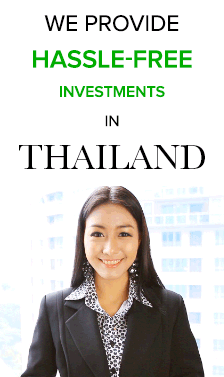Thailand Recovers World First Place as Rice Exporter
Thailand became the world”s biggest rice exporter during the first semester of the present year, as told by the National Exporters Association of Rice in Thailand.
The National Exporters Association said Thailand commercialized in the first semester of 2016 5 million tons of rice. This represented an increase of 12.1 percent compared to the same period of 2015.
Thailand excelled its main competitors: India, which exported 4.76 million tons; Vietnam, which exported 2.66 million, and Pakistan (2.44 million tons).
The president of the Association, Charoen Laothammathat, expressed his desire for the country to maintain this position at the end of this year, with a goal of 9.9 million tons of rice.
Nevertheless, he warned that the India might overcome the sales of Thailand for 2017, due to the over abundant supply and the decrease of the demand, because of the increase of the quotation of the baht (Thai national currency).
Source: Sin Chew Daily
Iconsiam plans B2bn exhibition hall

Above: The luxury complex worth 54 billion baht will comprise department store, a retail plaza, luxury residential condominiums etc.
Iconsiam Co will spend 2 billion baht to build a world-class exhibition hall at its Iconsiam shopping and residential project on the banks of the Chao Phraya River.
Director Chadatip Chutrakul said it will start building its True Iconsiam Hall next year, with a schedule to open for service in the first quarter of 2018.
True Corporation Plc will provide the budget for technology installation.
As a new magnet at Iconsiam, True Iconsiam Hall will have 12,000 square metres of space and a capacity of 3,000 seats.

Above: Director Chadatip Chutrakul (left) said it will start building its True Iconsiam Hall next year
The Iconsiam project, jointly developed by Siam Piwat Co, CP Group and Magnolia Quality Development Corporation, is situated on Charoen Nakhon Road. It will become a new landmark of Bangkok, surrounded by 3-5-star hotels with more than 10,000 rooms.
The luxury complex worth 54 billion baht will comprise Takashimaya department store, a retail plaza, luxury residential condominiums, a museum, an amusement park and a sports complex.
Mrs Chadatip said True Iconsiam Hall will be created to emphasise Iconsiam’s commitment to give Thailand an important position on the world stage and elevate the standard of Mice (meetings, incentives, conferences and exhibitions) and showbiz businesses in Thailand.
“We want to make Bangkok and Thailand a hub for international conferences and show performances – a fully integrated one with the highest potential in Asia,” she added.
Tourism and Sports Minister Kobkarn Wattanavrangkul said Mice is a service sector that brings in a lot of quality tourists and generates enormous revenue for the country.

Above: The luxury complex will comprise Takashimaya department store.
It also has a major role in income distribution to related sectors such as hotels, restaurants, conferences and exhibitions. Foreign travellers for Mice activities in Thailand spend 2-3 times more than general tourists. Thailand’s Mice business was worth 100 billion baht last year from 1 million international visitors.
True Iconsiam Hall will provide the latest innovations and technology including a retractable seating system — a first in Thailand — where seats are automatically folded away to suit all ranges of venue requirements and save time for event arrangements.
An acoustic tri-wall panel system, a first in Southeast Asia, will have automatically adjustable wall panels and ceiling panels in three types. It will be equipped with an aesthetic sound-absorbing system to accommodate all types of performances and international conferences.
Suphachai Chearavanont, chief executive of True Corporation, said True Iconsiam Hall will open a new dimension for the most advanced world-class centres for international conferences and exhibitions.

Above: With the government’s policy to synergise all stakeholders to make Thailand a top Mice destination in the region and the world.
“We are confident that True Iconsiam Hall will be able to attract Mice exhibitors and tourists from around the world in order to stimulate revenue for the country,” he said.
It will drive the economy in line with the government’s policy to synergise all stakeholders to make Thailand a top Mice destination in the region and the world.
It will also reflect the potential of Thailand to be a hub of regional tourism, helping drive the kingdom to be an outstanding country in Asia in hosting all kinds of world-class events.
Source: Bangkok Post
Nissan’s new models aim to drive growth, Japanese firm targets 10% of Thai market

Above: Nissan will also focus more on upgrading its dealership network and after-sales service.
Nissan Motor (Thailand) aims to raise its market share to double digits by 2018 from 5.6% now.
President Kazutaka Nambu, who yesterday outlined the Japanese carmaker’s mid-term plan ending in 2018, said Nissan plans to launch five new models by 2018 to help boost market share.
He said the company is also confident in the strong fundamentals of Thailand’s car market and expects it to recover to hit annual sales of 1 million vehicles again in 2020.
“Although the current market has been hit hard by massive car sales driven by the first-time car buyer scheme that expired in 2012, the market remains full of potential for Nissan to grow its sales and and market share,” Mr Nambu said.

Above: Kazutaka Nambu, president of Nissan Motor (Thailand), presents the Almera Nismo eco-car. Under its three-year plan, Nissan will focus on upgrading its nationwide dealership network and after-sales service.
Under its three-year plan, Nissan will also focus more on upgrading its dealership network and after-sales service.
According to marketing consultant J.D. Power’s survey of the customer service index for Thailand’s automotive market in the mass segment, Nissan was ranked sixth with 858 points.
Honda and Toyota were ranked top with 882 points each, with Isuzu third on 875 points.

Above: Toyota was ranked top with 882 points.
Mr Nambu said Nissan would develop its 200 outlets and service centres nationwide to move up to the top three in the near future.
For the fiscal year that started in April, Nissan is also upbeat about achieving sales growth of 2% to 50,000 vehicles, with market share up by 0.5% to 7%.
However, Nissan reported its sales dropped by 5.2% from April to June to 10,392 vehicles.
“The overall market is expected to shrink by 7-8% this year to only 740,000 units,” Mr Nambu said. “The market is expected to recover from next year.”
Nissan reported its highest sales during fiscal 2012 with 138,000 vehicles, propelled by the first-time car buyer scheme, before dropping to 74,000 in 2013.
Nissan sold 56,600 vehicles in its 2014 fiscal year, down 23.5%.

Above: The market is expected to recover from next year.
Nissan reported last month that its eco-car production had passed 500,000 vehicles, comprised of the March and Almera models. Its plant in Samut Prakan started to make eco-cars in March 2010.
Some 50% of the output was for export to 13 countries including Japan.
Although the parent firm has yet to disclose plans for Nissan’s eco-car expansion, it remains committed to production.
Source: Bangkok Post
Thailand seeks to adopt Japan’s bullet train system
Japan has gained the upper hand against China in their battle for high-speed railway supremacy in Southeast Asia after it bagged a deal to put up a bullet train system in Thailand.Japan and Thailand entered into an agreement for a high-speed railway starting from the Thai capital of Bangkok to the northern city of Chiang Mai using the famous Japanese shinkansen or high speed railway system.
A memorandum on cooperation for the venture was signed by visiting Japanese Transport Minister Keiichi Ishii and his Thai counterpart, Arkom Termpittayapaisith, on Saturday.Financial details, especially the project’s cost, were not disclosed. But the Nikkei Asian Review reported in May last year that the project could be worth $12 billion.The planned 670-kilometer project is much longer than the 350-kilometer high-speed railway project linking Malaysia and Singapore that Japan and China are currently battling to undertake.
Under the memorandum, phase one of the railway project involves the 380-kilometer section from Bangkok to Phitsanulok. Phase two will be from Phitsanulok to Chiang Mai, a premier tourist destination in the north.Japan will also develop areas along the railway to help increase passenger traffic.The two countries will also establish containerized transportation and railroad projects in Thailand’s so-called Southern Economic Corridor to spur development in the provinces bordering Myanmar and Cambodia.
After Taiwan, Thailand will become Japan’s second export market for its shinkansen system. The Southeast Asia’s second largest economy is also competing with Malaysia and Singapore in the race to host the region’s first bullet train.
Last month, Malaysia and Singapore formally signed an agreement to build an ambitious high-speed rail system that will reduce travel time between the Malaysian capital city of Kuala Lumpur and the tiny city-state to 90 minutes from the current five or more hours by road.
Thailand Inflation Slightly Up in July
Thailand’s consumer prices continue climbing, albeit at a considerably slower pace, in July on the back of higher fresh food prices, the Commerce Ministry said Monday.
According to the latest report, the country’s headline consumer price index inched up 0.10% in July from a year ago, but eased 0.35% on a monthly basis.
Meanwhile, core consumer price index, which removes volatile food and energy prices, went up 0.76% from last year and 0.06% month-over-month in July, compared with the poll’s median forecast for a 0.80% on-year increase and a 0.08% on- month rise.
From January to July, headline CPI fell 0.07% and core CPI increased 0.73% on-year from the same time of last year.
Annual headline consumer prices rose for a fourth straight month in July, driven by higher prices of food and cigarettes, the Commerce Ministry said on Monday.
The headline CPI index edged up 0.1% in July from a year earlier after rising 0.38% in June. A Reuters poll had forecast a rise of 0.45% in June.
The index stood at 106.68 points in July, down 0.35% from 107.05 in June.
The CPI index for food and non-alcoholic beverage sector in July rose 1.83% while the non-food sector dropped by 0.84% from the same month in 2015.
Low inflation is one reason the Bank of Thailand has left its policy interest rate unchanged at 1.50% since April 2015. The rate is just a quarter point above the record low during the global financial crisis of the 1990s. The central bank next reviews monetary policy on Aug 3, and most economists expect no change.
Source:nasdaq







